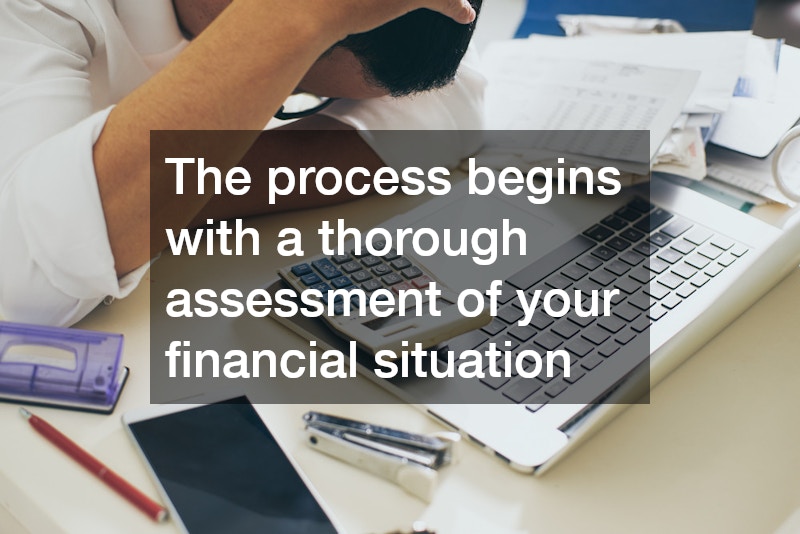Learn about the role of a Chapter 7 lawyer in assisting individuals with the bankruptcy filing process, and understand common questions and concerns to help emphasize the importance of professional legal assistance.
Understanding Chapter 7 Bankruptcy
Chapter 7 bankruptcy, often referred to as liquidation bankruptcy, allows individuals to discharge most of their debts while providing them with a fresh start. Eligibility for Chapter 7 involves passing the means test, which compares your income to the median income for a household of your size in your state.
If your income falls below this threshold, you may qualify for Chapter 7; otherwise, you may need to consider alternative bankruptcy options.
Additionally, certain types of debt, such as student loans and tax liabilities, are not dischargeable in Chapter 7. However, many unsecured debts, like credit card debts and medical bills, can be wiped out. Understanding who can benefit is crucial, as this bankruptcy option is particularly helpful for individuals overwhelmed by financial obligations.
It is essential to consider consulting with a Chapter 7 lawyer to navigate these requirements. They can assess your financial situation, guide you through the eligibility process, and advise you on the best path forward, ensuring that your rights are protected throughout the process.
Filing for Chapter 7 Bankruptcy
The process begins with a thorough assessment of your financial situation, including debts, assets, income, and expenses. This assessment helps determine if Chapter 7 is the appropriate solution for you. Once you have decided to move forward, an initial consultation with a Chapter 7 lawyer is critical, as they can help clarify the steps and alleviate any concerns regarding the process.
After the consultation, the lawyer will assist you in gathering all necessary documentation, including tax returns, bank statements, and a list of your debts and assets. This paperwork must be meticulously prepared and filed with the court. Upon filing, an automatic stay is issued, preventing creditors from pursuing collection efforts during the bankruptcy process, which offers relief to debtors facing aggressive collection actions.
Finally, a creditors’ meeting may take place, where creditors can ask you questions regarding your financial situation. This phase is crucial, as it often determines the success of your bankruptcy filing. A Chapter 7 lawyer will be by your side during this meeting, ensuring that you are prepared and know how to respond to questions appropriately, safeguarding your interests throughout the proceedings.
Assisting With Paperwork
One of the pivotal roles of a Chapter 7 lawyer is to assist you with the extensive paperwork required for filing. This can range from schedules listing your assets and liabilities to statements regarding your income and financial affairs. Legal language and requirements can be complex, making it challenging for individuals to complete the forms accurately without guidance.
Your lawyer will carefully review all documents before filing them, ensuring that everything is complete and complies with bankruptcy laws. Attention to detail is paramount, as even minor mistakes can lead to delays or complications in your case. A proficient lawyer will make certain that your paperwork reflects your financial situation accurately and presents it in a way that is favorable to your case.
Moreover, your lawyer will file the necessary documents with the bankruptcy court on your behalf, streamlining the process and reducing stress. They act as your advocate, ensuring that your rights are protected throughout and that communication with the court is handled professionally. This support is invaluable, especially for individuals unfamiliar with bankruptcy proceedings.
Post-Filing Management
Once you file for Chapter 7 bankruptcy, an automatic stay goes into effect, halting most collection efforts against you. This period provides immediate relief from creditors while your case is processed. Typically, within a few months, you will receive a discharge order, which wipes out eligible debts, providing you with a fresh financial slate.
However, it is essential to understand that filing for bankruptcy will affect your credit score. While the immediate impact can seem severe, it is often a necessary step toward rebuilding your financial health. Over time, individuals can recover from bankruptcy and begin to rebuild their credit through responsible financial management. Your Chapter 7 lawyer can offer advice on how to rebuild credit post-bankruptcy.
Additionally, it is crucial to consider any long-term consequences of bankruptcy. Individuals may face challenges securing new credit or loans shortly after filing. However, carefully following your lawyer’s advice can set the foundation for a stronger financial future. With the right support and understanding, you can effectively navigate the aftermath of filing for Chapter 7 bankruptcy.
The complexities involved in filing for Chapter 7 bankruptcy highlight the importance of having professional legal support. A Chapter 7 lawyer not only assists with paperwork and legal representation but also provides invaluable guidance throughout every step of the bankruptcy process. Their expertise can help navigate the nuances of bankruptcy laws, ensuring that your case is handled correctly.
The benefits of enlisting a Chapter 7 lawyer cannot be overstated. From understanding your eligibility and preparing documents to addressing challenges and planning for post-filing recovery, their support is instrumental in securing a fresh financial start. If you are considering filing for bankruptcy, seeking the assistance of a qualified attorney can make all the difference in achieving the relief you need.












